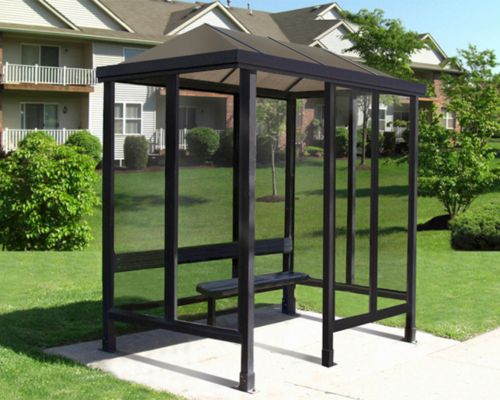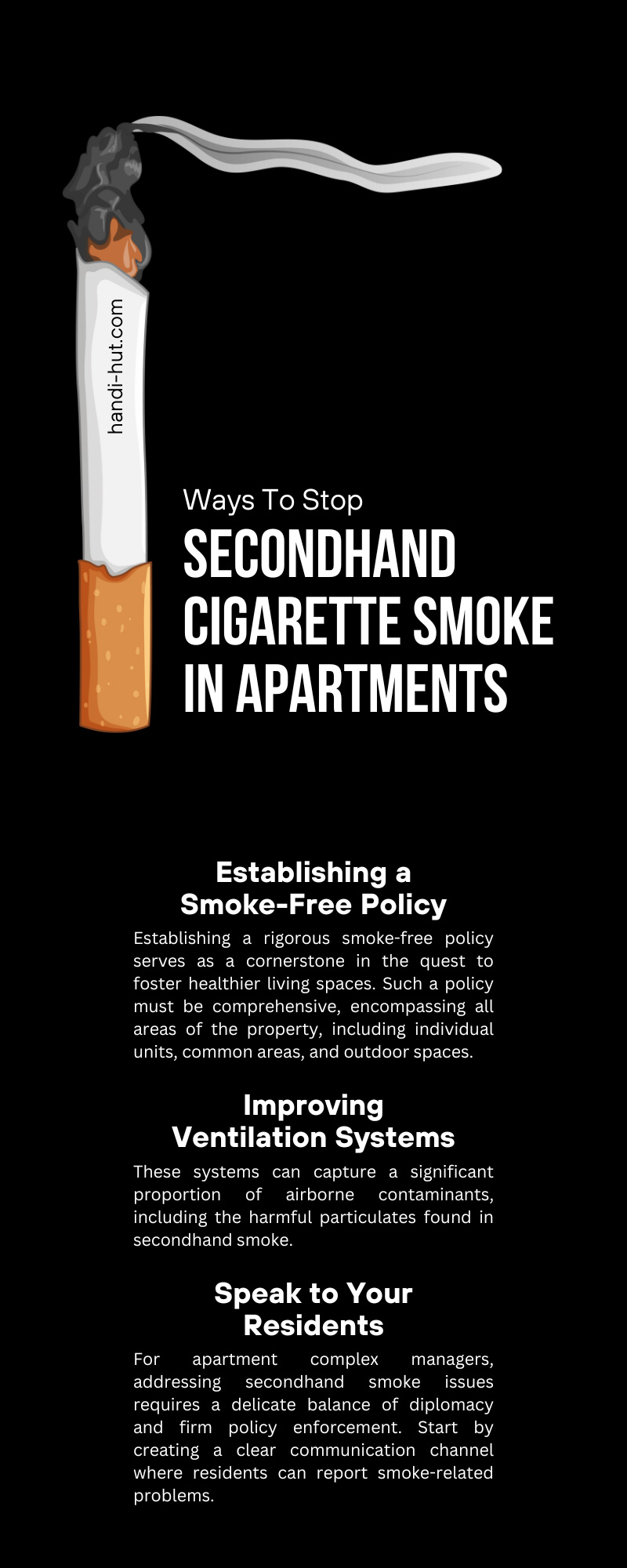
In the world of apartment living, secondhand cigarette smoke can be a persistent and seemingly inescapable problem among residents. It’s an unwanted guest infiltrating the homes of your tenants from neighboring balconies, creeping up stairwells, or seeping through shared walls and under doorways. Its presence is more than just a bothersome smell; it could provoke serious health concerns.
Secondhand smoke carries multiple harmful substances known to cause a range of diseases, from respiratory infections to heart disease and even lung cancer. For those with existing health conditions or sensitivities, the impact can be immediate and severe.
The gravity of this issue demands decisive action. These strategies to stop secondhand cigarette smoke in apartments can help you protect the health of residents and reclaim the safety of your apartment complex from the intrusion of harmful smoke.
Establishing a Smoke-Free Policy
Establishing a rigorous smoke-free policy serves as a cornerstone in the quest to foster healthier living spaces. Such a policy must be comprehensive, encompassing all areas of the property, including individual units, common areas, and outdoor spaces.
Property managers can incorporate smoke-free clauses into lease agreements to ensure adherence, effectively securing tenant compliance from the onset of occupancy. Providing support for residents who wish to quit smoking by way of cessation programs or resources reflects a proactive approach, further distinguishing the management as a community advocate.
Improving Ventilation Systems
In the pursuit of optimal air quality, consider integrating advanced air filtration and purification systems. These systems can capture a significant proportion of airborne contaminants, including the harmful particulates found in secondhand smoke.
Utilizing modern ventilation technologies can dramatically improve the purity of indoor air. Engaging with reputable HVAC professionals to periodically assess and maintain the filtration system ensures persistent efficacy. It underscores a property manager’s commitment to the highest standards of resident health and comfort.
Speak to Your Residents
For apartment complex managers, addressing secondhand smoke issues requires a delicate balance of diplomacy and firm policy enforcement. Start by creating a clear communication channel where residents can report smoke-related problems.
Once you’re alerted, arrange a private meeting with the smoking resident to discuss the situation. Provide educational resources about the effects of secondhand smoke and offer practical solutions, such as outdoor smoking shelters away from the building. This proactive approach resolves individual cases and fosters a respectful and health-conscious community environment.
Sealing Gaps and Cracks
The meticulous task of sealing gaps and cracks transcends mere cosmetic repairs; it is a critical operation in the broader spectrum of environmental control. This practice is pivotal for maintaining the integrity of the living spaces of residents.
By utilizing state-of-the-art sealants and construction materials, you can significantly mitigate the infiltration of secondhand smoke. This form of preventative maintenance ensures a higher standard of air purity within each residence and reflects the property manager’s in-depth understanding of building science principles.
Utilizing Air Purifiers and Filters
As a property manager, you are responsible for educating and empowering your residents about the advantages of integrating HEPA air purifiers into their daily lives. By advocating for the use of HEPA-equipped air purifiers, you assert your stance on maintaining a healthy living environment while providing residents with a means to further improve their spaces.
It is critical to underscore the effectiveness of HEPA filters in capturing a broad spectrum of harmful air pollutants. These include dust, pollen, pet dander, mold spores, and cigarette smoke, making HEPA-equipped air purifiers an indispensable appliance for all residents year-round.
Supporting Smoking Cessation Programs
It’s important to know about the transformative impact that supporting smoking cessation programs can have, not only for individuals but also for the collective well-being of all residents. By facilitating access to cessation resources, including counseling services, support groups, and medical consultations, you actively invest in the health prospects of your community members.
The implementation of these programs should promote safety, health, and comfort as a cornerstone of your property management philosophy. By integrating smoking cessation into your health initiatives, you demonstrate an unwavering resolve to uphold the quality of life within the property.
Handling Complaints and Enforcement
It’s important to develop a robust and effective protocol for handling complaints related to secondhand smoke. You must approach each with an unwavering commitment to fairness and transparency, ensuring that all parties involved understand the steps taken to address their concerns.
It is paramount that you remain vigilant in the enforcement efforts and demonstrate consistency in the application of established smoke-free policies. Advocate for record-keeping practices that meticulously document all incidents and responses. This step offers clarity and accountability and serves as an invaluable resource for identifying trends and areas for potential policy refinement.
Monitoring and Re-Evaluation
Ongoing vigilance in monitoring the effectiveness of smoke-free policies is not a mere formality but a cornerstone principle that ensures the commitment to a healthy living environment. As property managers, it is crucial to conduct regular inspections and gather feedback to evaluate the success of the initiatives against secondhand smoke.
Measure success using quantitative and qualitative metrics. By regularly assessing the property’s landscape and collating and examining data, you can make informed decisions. If you detect non-compliance patterns, it is crucial to act thoughtfully, leveraging the findings to refine the strategies and policies.
Leveraging Educational Platforms and Resources
In the pursuit of cultivating healthier communities, an informed property manager is pivotal in promoting sustainable, smoke-free environments. The use of a variety of educational platforms and resources can bolster knowledge and support your engagement with residents. These resources include webinars, online courses, health policies, and targeted workshops.
It’s crucial to know about the risks associated with secondhand smoke and articulate the tangible benefits of smoke-free living spaces. This knowledge will empower you with persuasive communication strategies and proactive measures that you can implement at the property level to encourage adherence to smoke-free policies.
As a property manager, you have the opportunity and the responsibility to create a safe haven for your residents. By taking proactive steps to eliminate secondhand cigarette smoke in apartments, you uphold the highest standards of health and safety while enhancing the overall quality of life within your community. Your commitment not only reflects well on your professionalism and your brand’s reputation but ultimately contributes to the greater good of public health.

